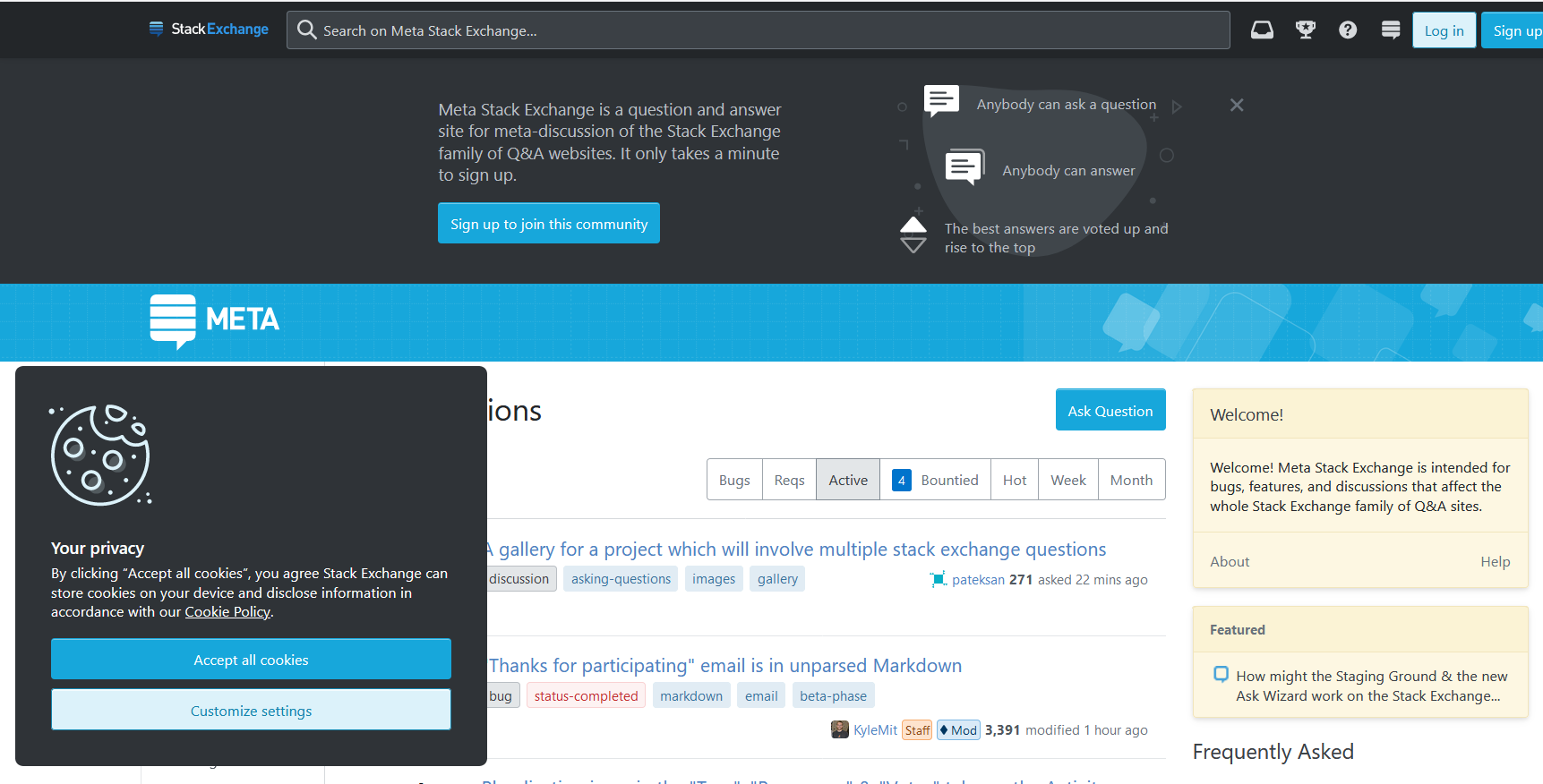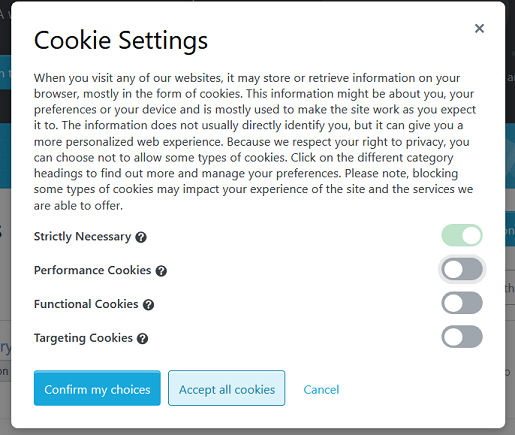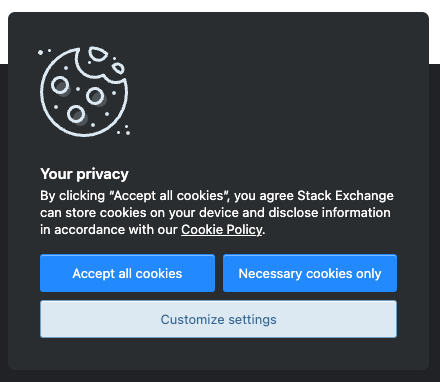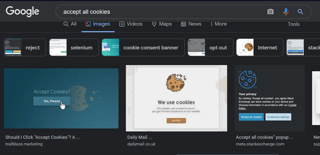Just a quick addition to point out why a company choosing privacy as the default may be better off in the long run when compared to a company that annoys their users by making it more difficult to reject unnecessary cookies than accept all cookies...
It turns out that DuckDuckGo is making a non-Chromium based browser that includes a feature to manage the cookie consent dialogs:
Tired of dealing with cookie consent pop-ups? Not only does DuckDuckGo for Mac clear them for you on many sites, we also automatically set your preferences to minimize cookies and maximize your privacy.
When online advertising got too annoying, ad-blockers were invented. When advertisers started fingerprinting browsers to get around people blocking cookies and "beacons", technology to make that more difficult was invented. When companies come up with these "consent" dialogs that don't actually solicit true consent, blocking those dialogs and withholding all consent becomes a selling point for browsers.
In this online privacy arms race, which side does the company want to be on?
The point is that "Privacy should be the default setting here..." and Stack Exchange's dialog is a very clear example of how it is not the default.
This is the current (12 April 2022) cookie dialog and it is pretty much identical to the one shown in the video (regardless of the source of that one):
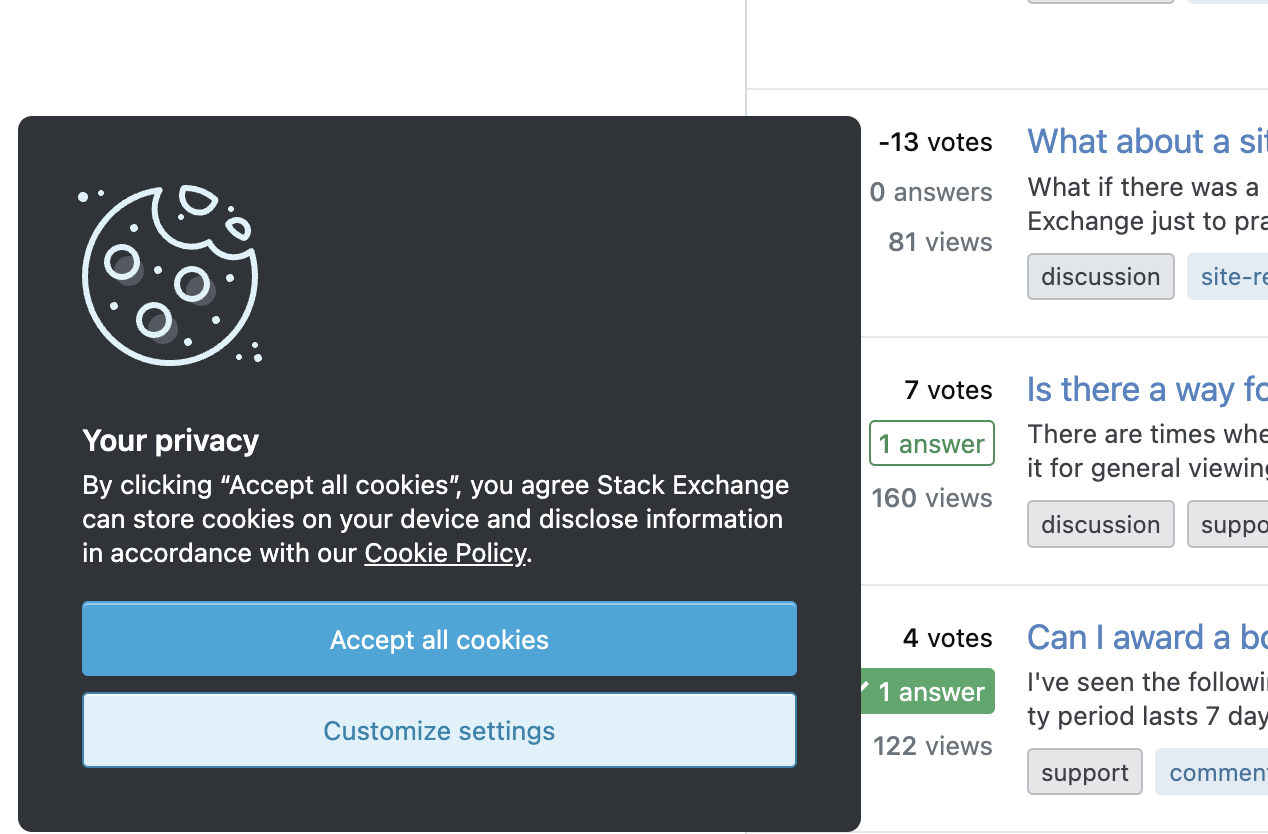
The main problem with this dialog is not the text on it, and not the size, or whether it is GDPR compliant. It is that it doesn't default to the most privacy-protecting state. The dialog clearly defaults to the least privacy-protecting state, and that is why it ended up as an illustration for John Olliver's show. I'm sure most people have no problem with the dialog having a button to enable the wonderful benefits the other "not strictly necessary" cookies provide. It is the absence of a button to dismiss that dialog without providing consent for all those other cookies that is the problem.
Having a dialog that informs you about the cookies a site wants to set is not a bad step, but the ideal situation is that all web sites only use strictly necessary cookies, and they have to convince users to enable those other cookies by providing real value to the user.
The only reason this is difficult is that the cookies many users want to reject only provide a lot of value to the site and to advertisers. If you want to track me and gather valuable data about how I interact with a site and ads that appear on it, you need to compensate me with more than personalized ads I end up blocking because they're annoying (and sometimes creepily targeted).
I don’t object to advertising. I actually enjoy some ads when they’re clever and I used to not block ads on Stack Exchange. The type of advertising that needs to track me across sites and target me based on my browsing history (and other data if they can figure it out) has never been the sort I find valuable.


